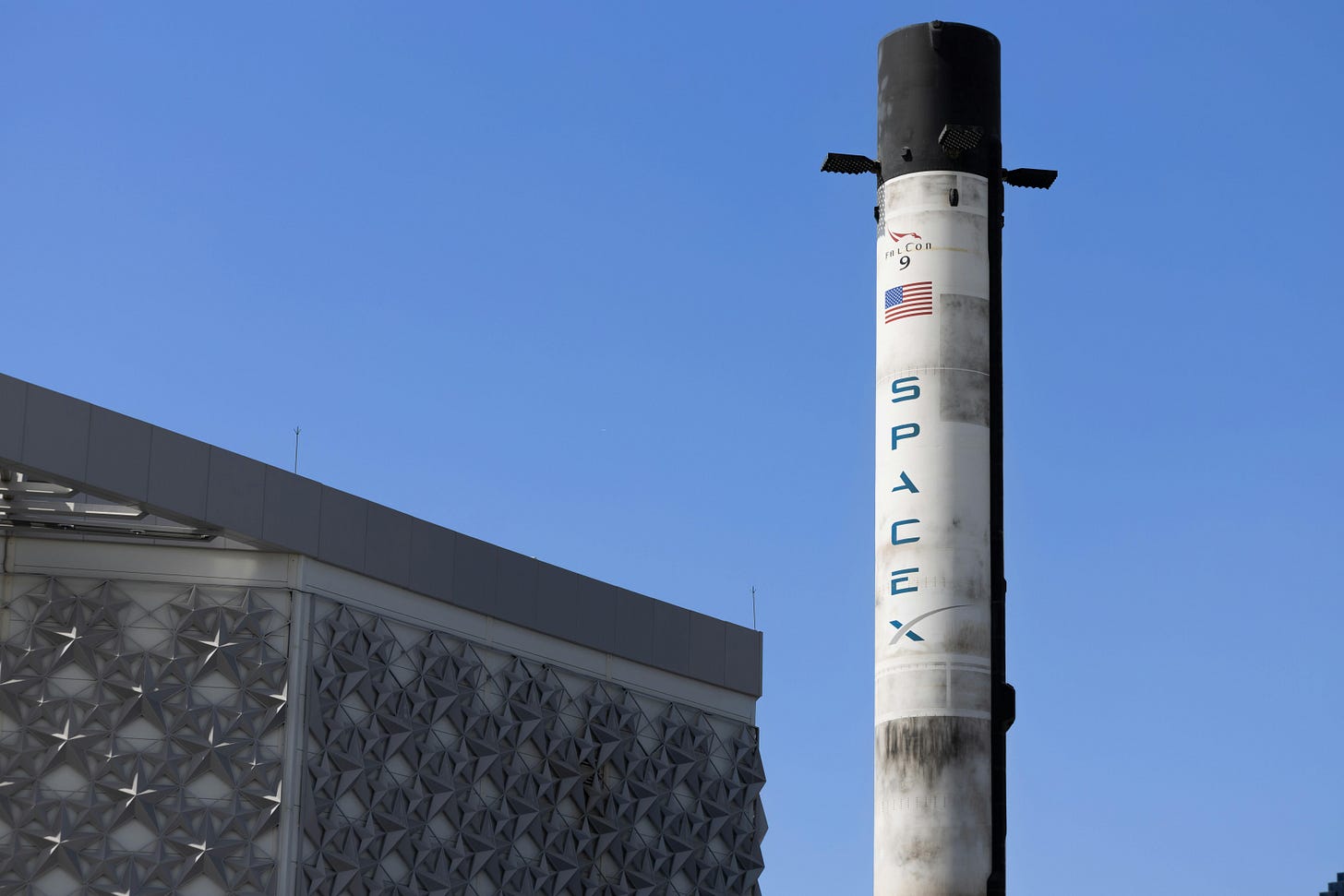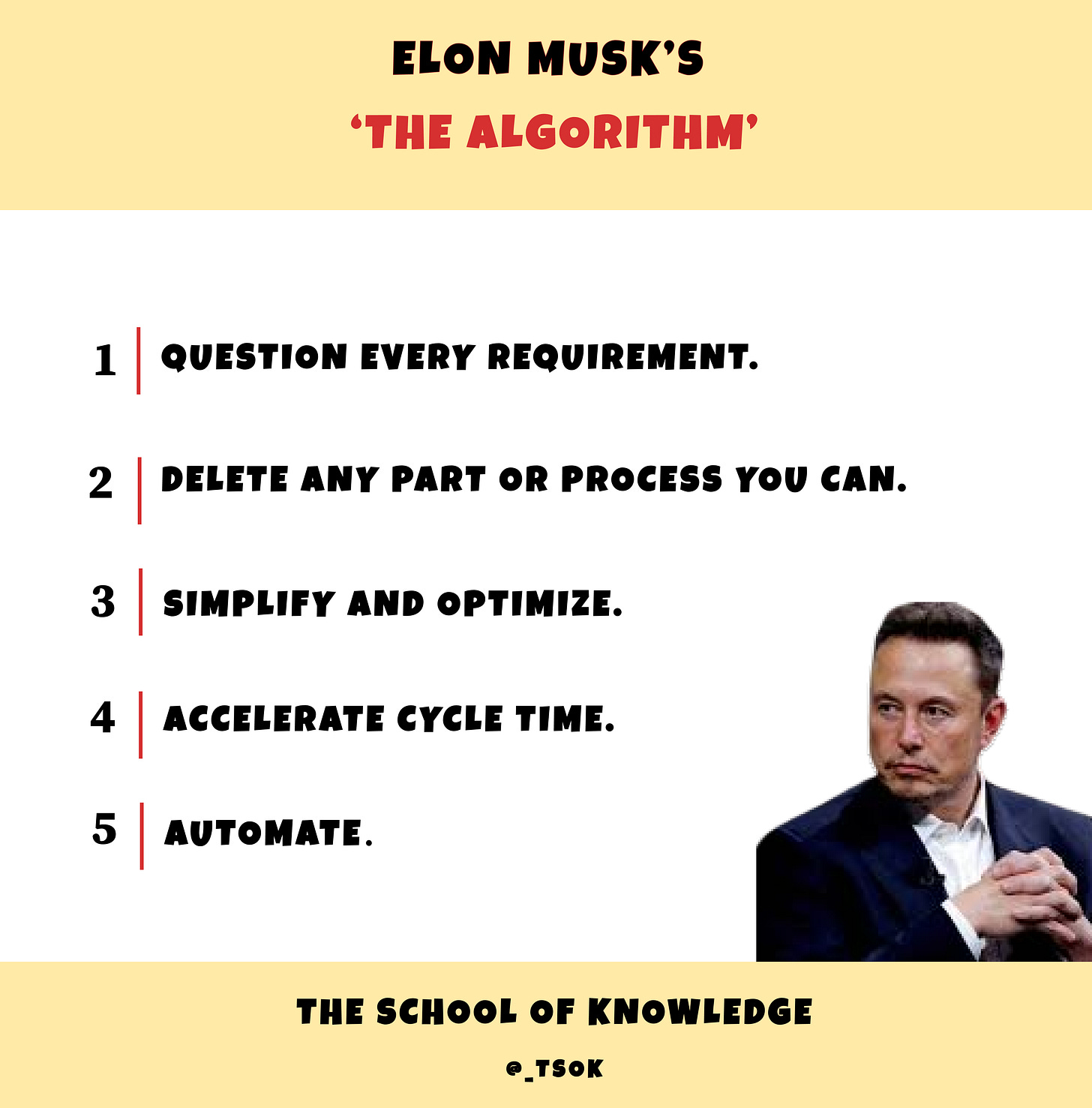"You can feel whatever you want about Elon's behaviour," Gates said, "but there is no one in our time who has done more to push the bounds of science and innovation than he has."
- Bill Gates
Elon Musk is a visionary.
From revolutionising electric cars to planning humanity's future on Mars, Musk's ideas are shaping our world. His manic sense of urgency and relentless ambition combined with his appetite for exploration and risk-taking make Musk a living force majeure.
Here are the 5 key takeaways from reading Walter Isaacson’s brilliant biography that could just change your life.
Photo by Kindel Media.
1. Mindset
Elon Musk thinks differently.
Brought up in South Africa he would spend his youth in emotional turmoil. His father was abusive, at least mentally, his mother wasn’t there and he was bullied. He developed an appetite for dealing with such turmoil by turning his emotions off and fighting.
An escape for Musk was video games and books. Something he still uses today to deal with the stress of running several multi-billion dollar companies, of which one is changing the electric car industry, one is taking NASA astronauts to space and another houses half a billion users on its app. Musk has learnt, or rather not sometimes, to deal with the world as he sees it in his own way. This makes him very interesting but at times very confusing to understand.
But, you don’t do the things he has done without thinking differently.
"With the conviction of a prophet, he would speak about the need to nurture the flame of human consciousness, fathom the universe, and save our planet. At first I thought this was mainly role-playing, the team-boosting pep talks and podcast fantasies of a man-child who had read The Hitchhiker's Guide to the Galaxy once too often. But the more I encountered it, the more I came to believe that his sense of mission was part of what drove him. While other entrepreneurs struggled to develop a worldview, he developed a cosmic view."
- Walter Isaacson
Musk’s cosmic worldview helped him to see things that others couldn’t. Electric car sales were dead. Nasa hadn’t been back to the moon for over 3 decades when he started Space X. Zip2, an online directory he and his brother started and sold for $305 million in 1995 was laughed at when he tried to sell the idea to people only years earlier. Somebody even threw a Yellow Pages book at his brother, screaming and asking him did he ever think he would replace it.
Musk certainly did and now guess what we all have in our phones? Digital maps with shops, bars, places etc on them. Aka a directory.
"If conventional thinking makes your mission impossible. Unconventional thinking is necessary."
- Elon Musk
Musk is obsessed not just with the product but with the machine that builds the product. Steve Jobs too had this philosophy at Apple. Both men understood that just having a beautiful product wasn’t enough. The entire ecosystem has to work together.
"It's not the product that leads to success. It's the ability to make the product efficiently. It's about building the machine that builds the machine. In other words, how do you design the factory?"
-Elon Musk
2. Risk
Elon Musk thrives on risk and adventure.
It streams through his blood. He is only too aware of the inefficiencies of the bureaucratic process he thinks has plagued the United States. He thinks like a machine devoid of empathy on a crusade to save humanity, willing to purge what isn't needed and keep only what is necessary. He expects his teams around him to have the same appetite for risk as he does and he staunchly believes that some risk is necessary to advance technology and humanity.
"When you've had success for too long, you lose the desire to take risks."
- Elon Musk
Musk believes that people, companies and countries aren’t always guaranteed to be on an upward trajectory. He’s an avid reader and is only too aware that once great empires crumble when they stop innovating. When they stop moving. Musk is willing to put his neck on the gauntlet at any given moment when he believes something has to be done. He would rather make a decision, have it go terribly wrong and either learn from it or come out looking like a king.
"Enough said," he declared. "You're getting analysis paralysis. We are moving every part possible to low-cost steel." At first, the only exceptions he allowed were for parts exposed to hot oxygen-rich gas combustion. Some of the engineers pushed back and suggested that copper, with its better ability to conduct heat, was needed for a face plate. But Musk argued that copper had a worse melt temperature. "I'm convinced you could make a steel faceplate," he said. "Please do it. I think I've been pretty clear: make it out of steel." He admitted there was a reasonable chance that it would not work, but it was better to try and fail rather than analyze the issue for months.
- Elon Musk
3. First Principles Thinking
First principles thinking is a default mode of Musk’s when an obstacle or opportunity comes up.
He’s suspicious of taking things for what they are. First principles thinking forces you to think about the conventional thinking of a subject, say building rockets and strip it right back to the fundamental truths. It’s a method we see Musk and other great thinkers use over and over again. Borrowing from Charlie Munger ‘To a man with a hammer, every problem looks like a nail.’
"As he stewed about the absurd price the Russians wanted to charge, he employed some first-principles thinking, drilling down to the basic physics of the situation and building up from there. This led him to develop what he called an "idiot index," which calculated how much more costly a finished product was than the cost of its basic materials.
If a product had a high idiot index, its cost could be reduced significantly by devising more efficient manufacturing techniques.
Rockets had an extremely high idiot index. Musk began calculating the cost of carbon fiber, metal, fuel, and other materials that went into them. The finished product, using the current manufacturing methods, cost at least fifty times more than that.
“If humanity was going to get to Mars, the technology of rockets must radically improve.”
- Elon Musk / Walter Isaacson
What were the basic physical requirements? It’s such a simple question but one that up until Musk, seems no one else had ever bothered to ask. Not even NASA who were paying up to 50 times the costs of the materials needed to make a rocket! Here’s another example:
“Decades of costplus contracts had made aerospace flabby. A valve in a rocket would cost thirty times more than a similar valve in a car, so Musk constantly pressed his team to source components from non-aerospace companies. The latches used by NASA in the Space Station cost $1,500 each. A SpaceX engineer was able to modify a latch used in a bathroom stall and create a locking mechanism that cost $30.”
- Walter Isaacson
Photo by iCliff Agendia
4. Iteration
Alongside his appetite for risk and preferred mode of thought, first principles thinking, Musk would also iterate. A lot. He also expected and at times demanded it from his teams. Iteration was key to advancing his ideas from bad to good to great. He urged you to try something new, think outside the box and if it doesn’t work try again. If it does work, make it cheaper, more efficient or quicker. Iterate, iterate, iterate!
Musk took an iterative approach to design. Rockets and engines would be quickly prototyped, tested, blown up, revised, and tried again, until finally something worked. Move fast, blow things up, repeat. "It's not how well you avoid problems," Mueller says. "It's how you fast figure out what the problem is and fix it.”
- Thomas Mueller
This overwhelming desire to squeeze every last drop out the proverbial lemon has allowed Musk to change the landscape of numerous industries. He deeply cares about the things he makes often not taking a salary and using his own money. Sure, he’s paid handsomely with his stock options but if his companies fail or he can’t get people to believe in what he’s building those stock options will go down, not up.
He was willing to add an extra $500,000 and months of delays to make the headlights on Tesla’s first Roadster more appealing. All to improve the product.
“Precision is not expensive,” he says. “It's mostly about caring. Do you care to make it precise? Then you can make it precise.”
- Elon Musk
5. The Algorithm
The algorithm is Musk’s step-by-step process he expects his employees to use when questioning an aspect of any given process. Nothing is off the table including safety regulations. As you can imagine this has got him into trouble. Like a prophet of a religion lays out their commandments so too does Musk have his five commandments:
Question every requirement.
Delete any process or part you can.
Simplify and optimise.
Accelerate cycle time.
Automate.
The algorithm was accompanied by some other strongly held beliefs of Musks such as:
Managers must have hands-on experience.
Comradery is dangerous.
Being wrong is ok but never be wrong and confident.
Don’t ask people to do things you would not do yourself.
Attitude is key. Skills can be taught, but attitude changes require a brain transplant.
Have a maniacal sense of urgency.
The only true laws are dictated by physics
Grab a free visual I made of the algorithm for free HERE.
Key Takeaways / Final Thoughts
It’s certainly true that Elon Musk thinks and acts differently to most people. He is constantly poking around and questioning the world around him but that’s good news for the rest of us because that’s something we all can do.
Focusing on one of these traits could be the difference between you doing good work or great work.
Implementing one or more could just change the world.
Mindset: When conventional thinking isn’t working for you use unconventional thinking instead.
Risk: Develop an appetite for risk. You can not grow without learning and to learn fast you have to take risks.
First principles thinking: Strip everything back to its fundamentals and absolute truths before building back up.
Iteration: It is better to try and fail so you can learn fast. If you succeed make it faster, better, cheaper.
The algorithm: To be used at all times by every employee when assessing a part or process.
I appreciate Elon Musk is like Marmite to a lot of people. You either love him or hate him. Let me know in the comments which side of the fence you’re on.
Until next time, Karl (The School of Knowledge).
📚 I read and share about history’s greatest minds, leaders and achievers, distilling their insights into actionable advice for everyday life. 💡







Could not have said it better. IMO X is nothing but trouble for him. I understand the fascination of space exploration or electrifying an industry that causes so much harm to our planet but why X?
He is, for the most part quite ok with free speech and that means any free speech. It just seems that when it’s directed at him or something of interest to him he changes his tune and to me that sounds quite authoritarian.
Great article. To answer your question Karl, I'm actually "on the fence", appreciating his visionary impact while questioning some of his practices. There is no denying that the world needs people like Elon to move us all forward, yet there is always a trade-off to consider (e.g. relationships, family...).